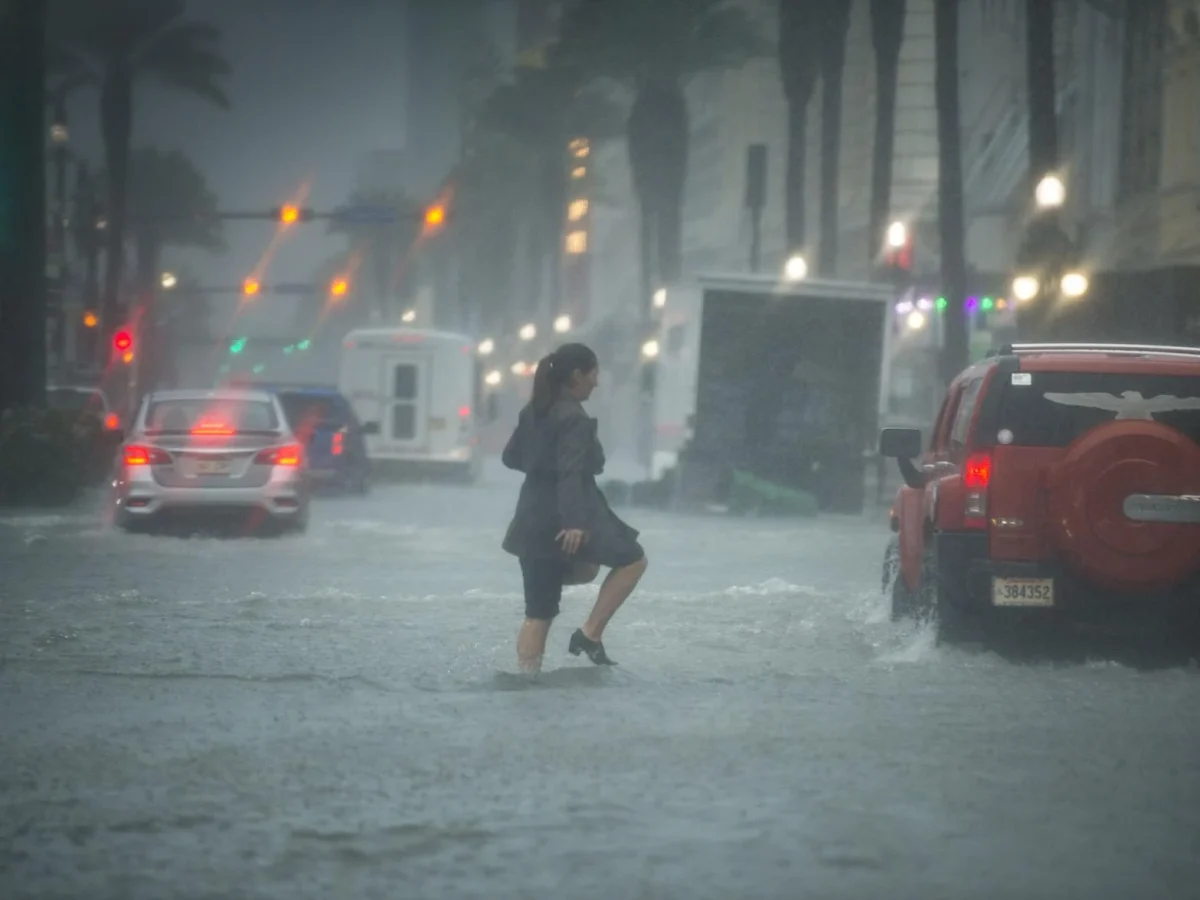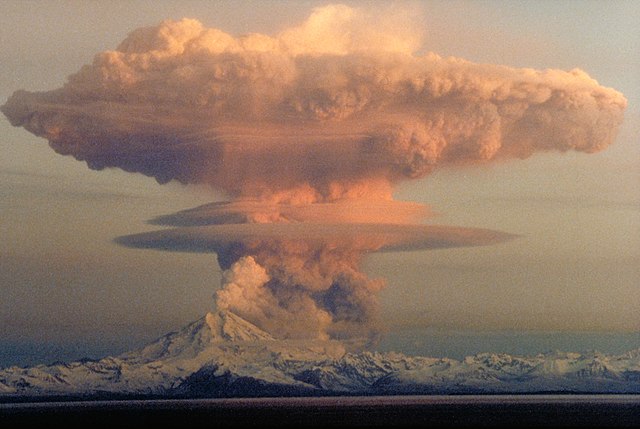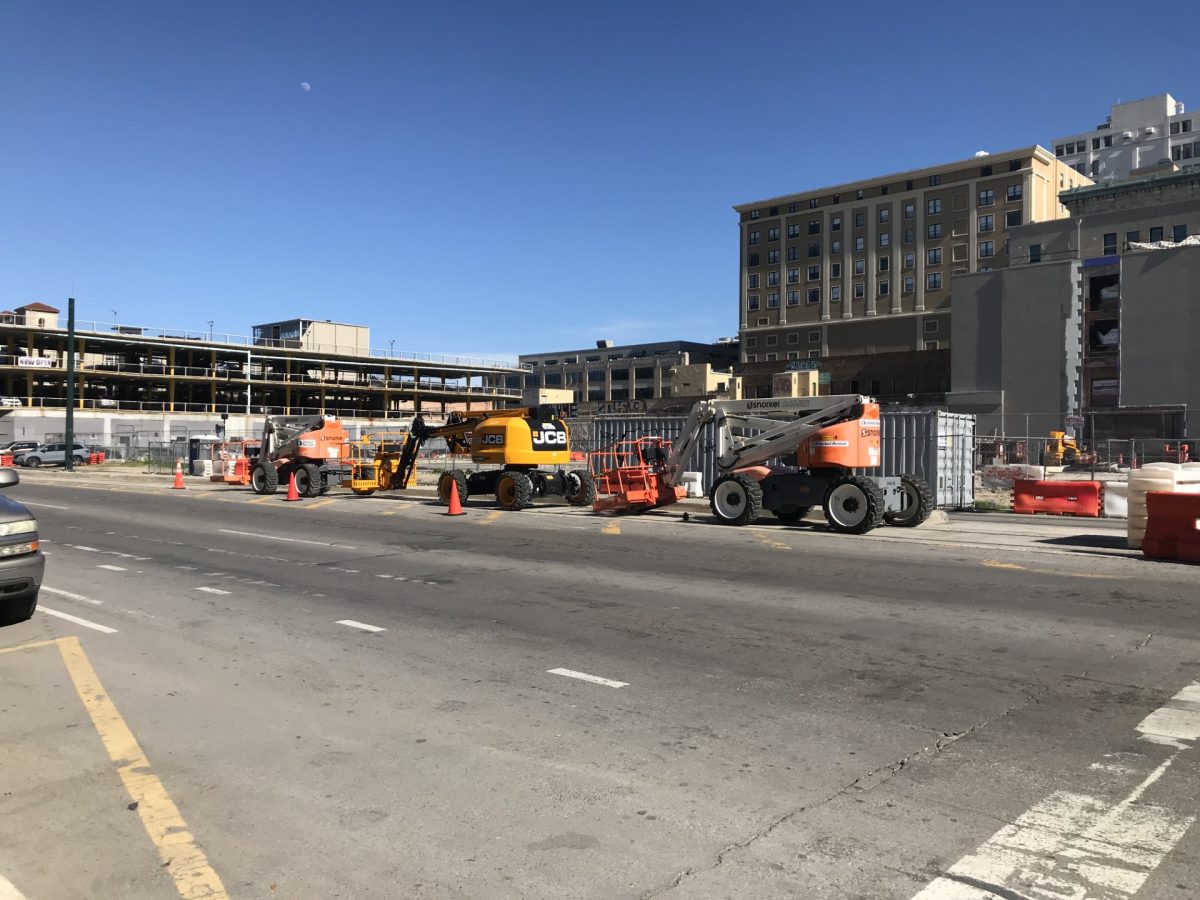New Orleans is not known for its beautiful weather; in fact, we frequently experience heavy rains, floods, and hurricanes. Inclement weather in New Orleans frequently causes workplaces and schools to close, due to threats of tornadoes, street flooding, and a multitude of other dangerous weather conditions. When Newman decides to cancel school or remain open due to inclement weather, there is always a range of opinions from students and teachers on campus. Thus, we interviewed Head of School Mr. Smith to learn more about the process the school takes and the many aspects that factor in to the final decision to cancel school.
When inclement weather is approaching, a team of 5-6 administrators gather to determine the best course of action. Newman and the 13 other local ISAS (Independent Schools Association of the Southwest) schools—including Sacred Heart, Trinity, and Country Day—begin to communicate through a group messaging system about their own courses of action. Newman takes into account the decisions of other independent schools—who are in close proximity and share similar capacities to manage bad weather—when making the decision for the Newman community. While many public schools are the first to announce closures, Mr. Smith provided the example that many public schools provide bus transportation, and those schools might decide to cancel to eliminate any dangers involved with students walking outside (in potentially dangerous weather) to reach the bus stop. However, independent schools do not worry about this potential problem. The team also considers the actions of nearby Catholic schools and local colleges like Tulane and Loyola to make the most informed decision for our campus.
Next, the team looks at Newman’s ability to open and conduct school safely. Mr. Smith states that “a lot of data points go into what is a final decision that for some feels like it was just made.” Naturally, one of these factors is constant weather monitoring. An important aspect of this decision is students’ ability to arrive and depart from school safely. If the weather is expected to start around nine in the morning and last until two in the afternoon, parents could drop their children off at school before the bad weather starts and pick their children up after the weather ends. In addition, students are potentially safer at Newman during periods of inclement weather rather than at home due to the massive brick buildings on campus that allow students to shelter in place. The school has procedures outlined in booklets hung up across campus to instruct faculty and students of how to navigate different safety issues. Additionally, it is relatively easy to conduct school during weather events. For example, while it may be difficult, the school can function without electricity.
In an ideal situation, Mr. Smith and the emergency team try to make a final decision around 5-6 pm the night before. This provides families with time to find childcare and reconfigure their schedules. However, not every situation is ideal. One example was the ice day from earlier this school year, in which the decision to cancel school was made overnight due to new developments that resulted in the consensus that closing school would be the safer decision.
Newman also has a few “hurricane days” built into its calendar in terms of hours, rather than days. For example, taking two weeks off for Hurricane Ida in 2021 was too much, and required modifications to the schedule later in the year to accommodate school days we missed in August and September. However, even though school has been canceled or ended early a few times this year, we are still within our period of “wiggle room” for hurricane days.
In comparison to inclement weather, it is sometimes easier to operate school under other elevated procedures. During boil water advisories, the school can “turn off the taps” and provide bottled water, and the Dining Hall has procedures in place to accommodate their ability to serve lunch to students across campus. However, when the water main burst earlier this year, there was no water pressure, leading to no functioning bathrooms. This poses a sanitary hazard, especially because there are about 1,500 people on campus any given day, causing the school to have to shut down early.
Ultimately, Mr. Smith and Newman’s highest priority is the safety of its students, and all decisions are carefully made by a team of administrators with the safety of our students in mind.








